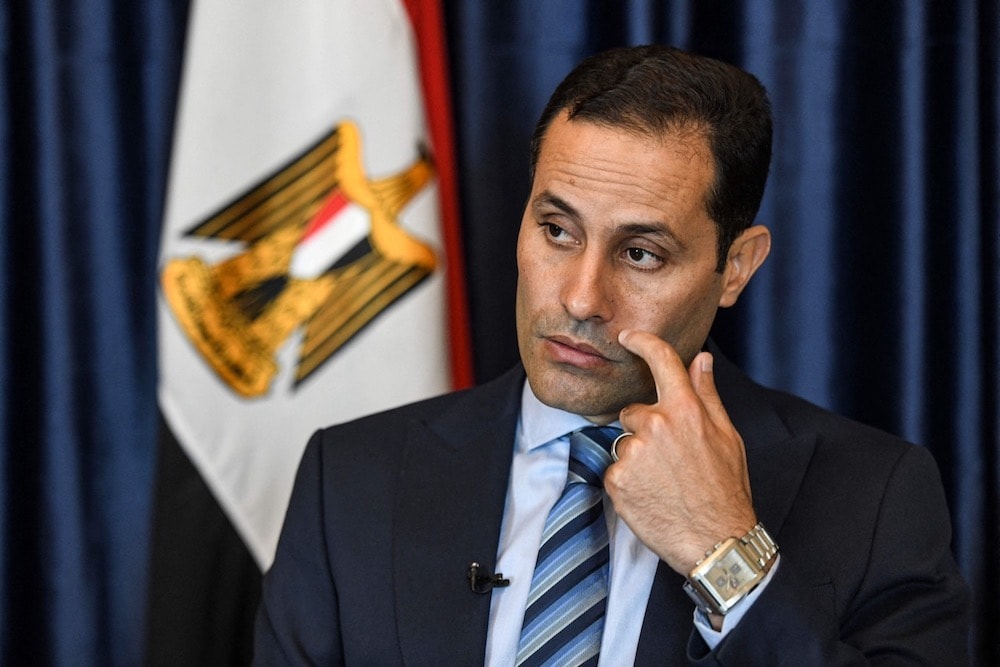Prison sentences aim at deterring peaceful dissent.
This statement was originally published on hrw.org on 8 February 2024.
An Egyptian court on February 6, 2024, sentenced the prominent politician Ahmed Tantawy, along with his campaign advisor and 21 of his detained supporters, to a year in prison for alleged offenses associated with his presidential challenge to President Abdel Fattah al-Sisi, Human Rights Watch said today. The court also barred Tantawy from running for national elections for five years. Tantawy and his aide, Mohamed Abu al-Dyar, were released on bail pending appeal.
The ruling by a Cairo court for minor offenses was entirely based on Tantawy’s peaceful political activism and the efforts of Tantawy’s campaign to collect support statements before the December 2023 presidential vote, in which Sisi won a third six-year term with 89.6 percent of the vote. Human Rights Watch documented the months-long series of unlawful arrests, intimidation, and prosecutions against potential candidates and their supporters which preceded the election, all of which effectively prevented any meaningful competition.
“The Egyptian authorities should immediately throw out the abusive charges against Tantawy and his supporters, which are nothing more than retaliation for his peaceful campaign to challenge President Sisi,” said Amr Magdi, senior Middle East and North Africa researcher at Human Rights Watch. “It isn’t just that the authorities are punishing peaceful dissent. By barring Tantawy from running in future elections, the authorities are sending a clear message that no serious challenge to Sisi will be tolerated.”
Tantawy and his supporters can appeal their sentences under Supreme State Security Case No. 2255 of 2023. The court ordered him and Abu al-Dyar to pay 20,000 Egyptian pounds each (about US$648) to avoid detention pending their appeal. Tantawy was the most prominent challenger to Sisi. Tantawy terminated his campaign on October 13, 2023, after repressive tactics by the authorities, including retaliatory detentions of his family members and supporters, prevented his campaign from collecting the 25,000 voters’ endorsements required to officially file his candidacy.
Tantawy’s campaign was able to galvanize plausible traction in Egypt’s otherwise strictly curtailed political sphere. When his campaign began collecting unofficial support statements to showcase the size of his support, the authorities arrested his supporters, claiming that this violated election laws because they printed out support statements without authorization.
Law No. 45 of 2014 on the Regulation of the Exercise of Political Rights provides for a minimum of one year in prison and/or a fine of 1,000 to 5,000 pounds (about $32 to $162) for “printing or distributing, in any way, election ballots or documents used in the electoral process” without authorization. Using this article to restrict the ability of activists to collect support statements or endorsements in the context of a political campaign is incompatible with the rights to freedom of expression and association under international human rights law, Human Rights Watch said.
Tantawy’s campaign shared with Human Rights Watch a list of dozens of supporters whom it said authorities have detained in recent months in nine Supreme State Security cases. The Egyptian Initiative for Personal Rights said that at least 127 people have been detained on charges similar to those in Tantawy’s case and in relation to his campaign.
The Supreme State Security Prosecution (SSSP) is a branch of the public prosecution that has served in recent years as one of the government’s primary tools of repression, often keeping tens of thousands of dissidents in custody in prolonged and abusive pretrial detention, without a chance to be released on bail and based solely on peaceful activism. The SSSP routinely fails to investigate cases of torture and abuses in detention while using torture-tainted confessions against political dissidents and critics.
All those arrested without credible evidence of a recognizable offense should be immediately and unconditionally released, Human Rights Watch said.
“By continuing the persecution of Tantawy for challenging Sisi, Egyptian authorities have further pulled the mask off a farcical electoral process that ensures one-man rule and annihilates Egyptians’ right to genuine political participation,” Magdi said.



